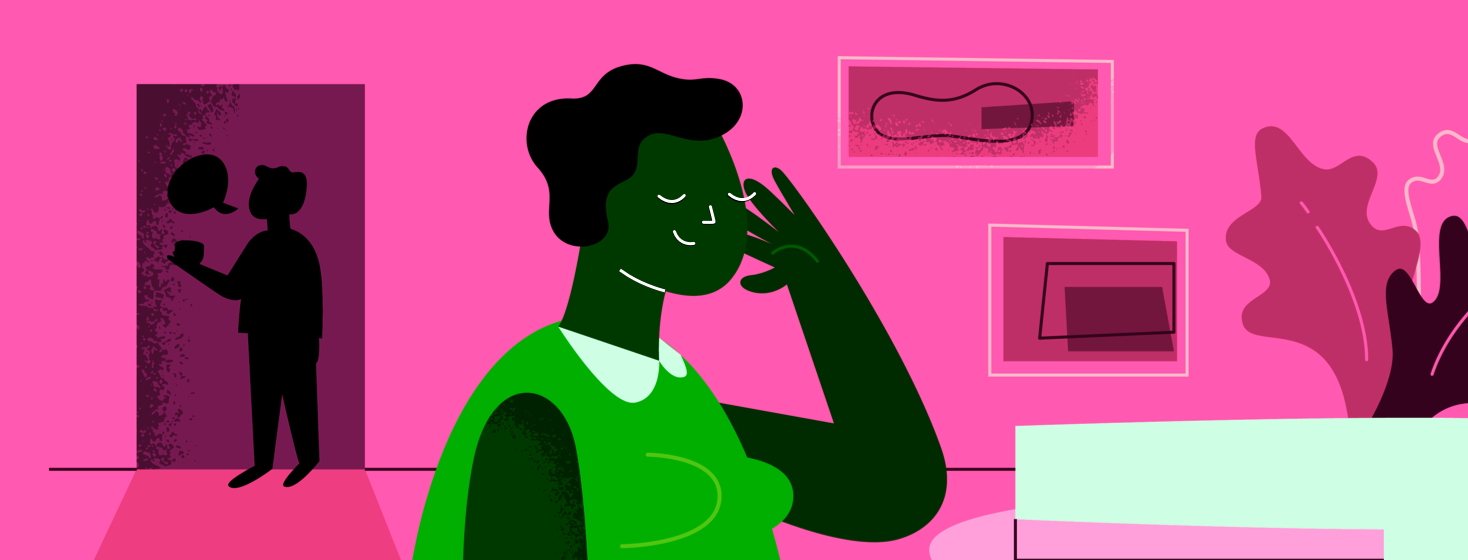Tips for Clearly Communicating With Visually Impaired Loved Ones
I’m going to go out on a limb here and say that we, as humans, often don’t know how to communicate with others. We aren’t always great at having the courage to voice our needs or to offer our help. Throw in individual needs for people with disabilities and it can get even harder.
Communicating and understanding disabilities
I believe that we want to communicate with each other, we just don’t always know how. Communicating with someone who has a disability, like visual impairment, can feel uncomfortable because we may not be familiar with their specific needs. Macular degeneration is one of those things that is hard to fully understand without having experienced it yourself.
Accidental harm
In the process of trying to communicate with others, we can even do or say hurtful things. Usually, it's unintentional, of course. I’ve been in this situation a few times and have always wondered how I can better communicate with anyone that crosses my life path. I hope I might be able to give some helpful tips to anyone in our community who feels the same way!
We're only human
People are people; we make mistakes. First of all, I think it’s really important to point this out. It doesn’t matter if someone struggles to see or to hear, is in a wheelchair, or is even just younger or older than us (not disabilities, but communication can often get lost between generations and cultures as well).
Dos and don'ts
People just want to be included and treated as fellow human beings. If we keep this in mind, communication is actually pretty simple. Here are some tips to help bridge the communication gap between someone battling vision loss and their loved ones:
- Don’t talk ‘down’ to a person with vision loss or increase tone of voice (There’s no need to change your tone of voice, we can hear you well!)
- Do try to introduce or identify yourself as you enter a room so we know you’re there.
- Don’t just point in a general direction and say things like "it’s over there."
- Do try to be specific about things. For example, “It’s over there on the table next to the book.”
- Don’t assume people with vision loss need or want things done for them. This can unintentionally cause hurt feelings. Asking if we need assistance is a great way to offer help.
- Do ask if they’d like you to describe something’s color, pattern, shape, or read something aloud to them. One of my close friends appreciates me snapping pictures of things for her and texting them to her so she can open it and expand it so she can see.
- Don’t forget the individuality of each person. Their needs, dignity, and independence are unique and important to them. Be open and start a conversation. This can go a long way.
- Do try to help if you see a potential danger. For example, steps ahead or a slippery spot on the sidewalk. We really appreciate this!
Start the conversation
It isn’t always easy to ask for help. Asking others for help often feels like we may be burdening them, and that can be uncomfortable. If you know someone who is battling macular degeneration or vision loss, please consider starting the conversation. Opening lines of communication is a great start to getting everyone the help they need without feeling like a burden.
Recently, I’ve had a lot going on and have had so many friends and family members ask if they can do anything to help. They all sincerely mean it when they tell me they are there for me for whatever I need. And, when I tell them the same, I sincerely mean it too. But, it can still feel uncomfortable to say, “Ya, you know what, I could use some help with x, y, and z.”
Offer specific help
Might I encourage you to offer specific help? Here are a few questions to get you started:
- When is your next doctor’s appointment? Can I take you and spend the day with you?
- I have to go to the grocery store on Friday to grab a few things. Would you like to join me?
- I noticed that the lighting in your living room is a little dim. Do you prefer it that way or would you like me to put in something brighter?
- It's a beautiful day! I'm going to mow my lawn and prune my garden. Do you mind if I take care of yours too while I'm at it?
Communication is so important when it comes to maintaining relationships. But, communication isn’t always an easy thing to do. Especially with added obstacles like vision loss. Be open and vulnerable. It pays off!

Join the conversation